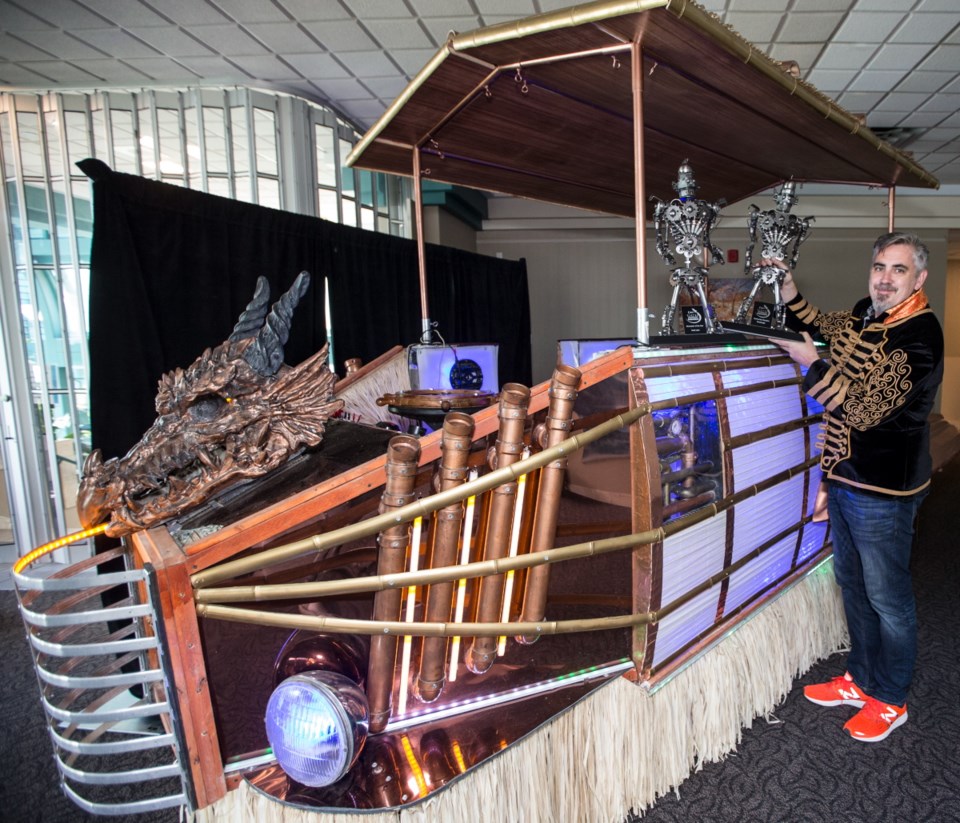Greater Victoria’s booming tech sector is applauding the province for establishing a new trade and investment office in Seattle.
Saying it will improve access to capital, especially for higher-risk start-up ventures, Victoria’s tech sector sees the move as a step toward its goal of having its companies more than double their existing combined revenues to $10 billion by 2030.
“As we aspire to grow our tech companies by almost 300 per cent, the most natural market for us to pursue has always been the United States,” said Dan Gunn, chief executive of the Victoria Innovation, Advanced Technology and Entrepreneurship Council. “Something that close and easy to reach for customers, strategic partners and investors is a terrific opportunity.”
Gunn said the Seattle office just makes sense, as combined with the existing office in San Francisco it covers off the two closest and most important markets for Island tech firms.
The Seattle trade and investment office opened this week and expands the province’s trade network in the U.S.. There are currently offices in San Francisco, Los Angeles and Boston.
The goal is to attract investment to B.C. and connect B.C. companies with venture capitalists, potential workers and partners in the U.S.
“I’ve always seen Seattle as the key focus for B.C. aerospace. It’s the world’s largest aerospace hub and only 45 minutes away,” said Scott Dewis, chief executive at Race Rocks 3D. “[Seattle-based] Boeing has a large presence in Western Canada generating
$3 billion in the Canadian economy. Seattle also has a large tech industry and many big corporate headquarters.”
Clayton Stark, chief technology officer at Kixeye, said establishing offices in Seattle and the Silicon Valley is the right move to help tech grow in B.C.
“I have to believe that any moves like this are likely to be net positive, at least for some segments of the industry, most likely those folks early in their ventures who are struggling to make connections and gain access to experienced mentors and investors,” said Stark. “There isn't enough risk-tolerant investment available locally and it’s no secret we have to look south of the border to gain access to more sophisticated players.”
The province, with a tech sector that recorded just over $26 billion in revenues in 2015, intends to open a new office in the Silicon Valley this fall.
“Having a new presence in the Seattle market is key to continuing to grow the British Columbia brand and to build on the Cascadia Innovation Corridor,” said Will Fox, managing director of B.C.’s U.S. Trade and Investment Office.
The Seattle office will be run by director Troy DeFrank, who spent the last six years as a trade commissioner at the Consulate General of Canada in Seattle.
“As a British Columbian who has worked on both sides of the border, there has always been a natural, progressive and rewarding relationship between the two regions,” said Edoardo De Martin, director of Microsoft Vancouver.
“This is an opportunity to formalize it and bring together the tremendous talent and ingenuity we have in B.C. and Washington state.”
The addition of a new trade and investment office is only one piece of the puzzle to improving the lot for tech companies in B.C., said Stark, who added that Ottawa has a big role to play.
“I always come back to the federal government’s real opportunity to drive technology in Canada forward, which is to remove the punitive tax laws that prevent Canadian companies from accessing scientific research and experimental development grants if they have in excess of 50 per cent of their funding coming from outside of Canada,” he said. “This outdated system continues to penalize Canadians for taking U.S. funding, even when that funding is used to put Canadians to work in our primary industry.”
As a result, Stark said his enthusiasm for accessing American capital is tempered significantly.
“Being U.S.-funded creates a material operating disadvantage relative to those companies who are able to secure Canadian investment,” he said. “This really needs to get fixed in order to maximize the value of these trade department initiatives.”
B.C. also has trade and investment representatives in Japan, South Korea, India, China, the Philippines, Indonesia and Europe.



